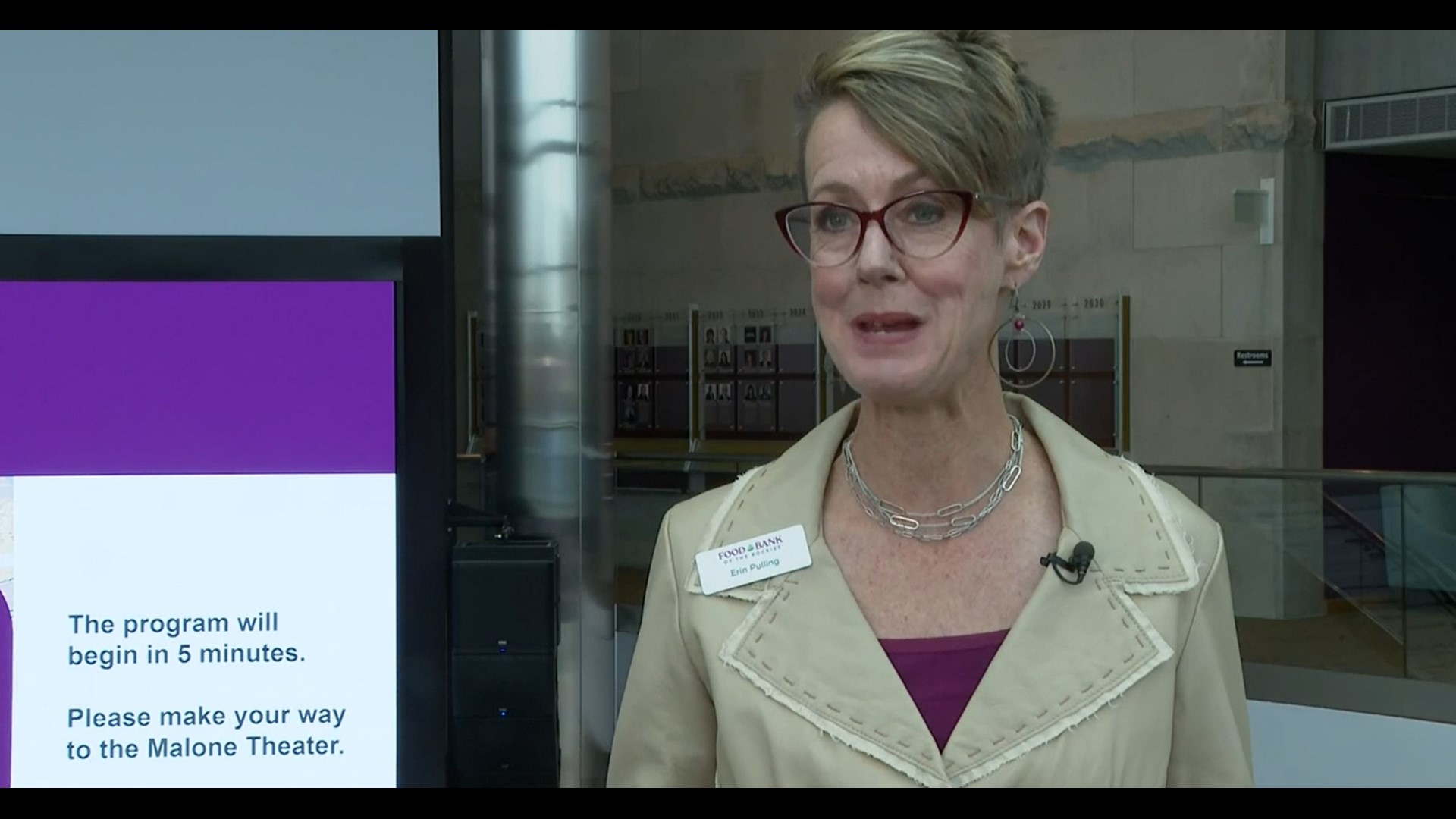DENVER — Hundreds of people gathered in Denver for a first-of-its-kind summit that takes a more holistic approach to helping people heal from chronic illness with the kind of food they eat.
The first Food is Medicine Summit was held on Wednesday, organized by Kaiser Permanente, Project Angel Heart, Colorado Health Institute and Food Bank of the Rockies.
The groups said help for your chronic illness may not be located in your medicine cabinet, but rather in your refrigerator. While the work they do on their own is crucial the five organizations teamed up to deliver something bigger.
“We are distributing enough food organization-wide for more than 180,000 meals every single day,” said Erin Pulling, president and CEO of Food Bank of the Rockies. "We need to come together for a more holistic approach so we can impact the health status of Coloradans."
“I think we all understand the impact and importance of healthy food. Maybe we just didn’t realize we can ask for it as a part of our health care,” said Owen Ryan, president and CEO of Project Angel Heart. "We need to do more we need to get more people access to healthy food across our state."
He said if people take a pill for what ails them but aren't eating nutritious food, you’re not getting any better and hopes this collaboration is a "game changer."
“It is something that provides them with improved outcomes, less depression, they’re more able to take care of themselves and it allows them to pay for other medication they need, utilities, because we are able to provide them food through community organizations and government programs,” said Wendolyn Gozansky, the chief quality officer for Kaiser.
Their goal is to get more neighbors’ hands on this nutrient dense food packed in food boxes.
“A home-delivered box every month with protein like tuna and peanut butter, and rice and beans and about five pounds of produce for the week,” Pulling said. “A neighbor that we serve named Rochelle was mentioning she is about $500 short every month until she started receiving home-delivered boxes of nutritious food she was referred by her nurse at Denver Health."
It’s a domino effect. She can now afford her other medical needs, but organizers said it doesn’t stop there.
“If we were able to give them medically tailored meals, we could actually decrease 1.6 million hospitalizations across the country and save over $13 billion dollars for the health-care system,” Gozansky said.
Food Is Medicine is a chance to bring more food, and hope, into their communities.
“Now this is the tipping point, we are going to make it happen here,” Ryan said.
“Our next step is making sure Coloradans have access to these programs when they need it, so Food is Medicine programs exist across our state but they’re not supported in a way that the communities can access them easily,” Ryan said. “We need to change that, we need people to know when you get sick or when you need healthy food that you can reach out to your local provider, doctor, or local state agency and they’re going to hook you up.”
SUGGESTED VIDEOS: Latest from 9NEWS

